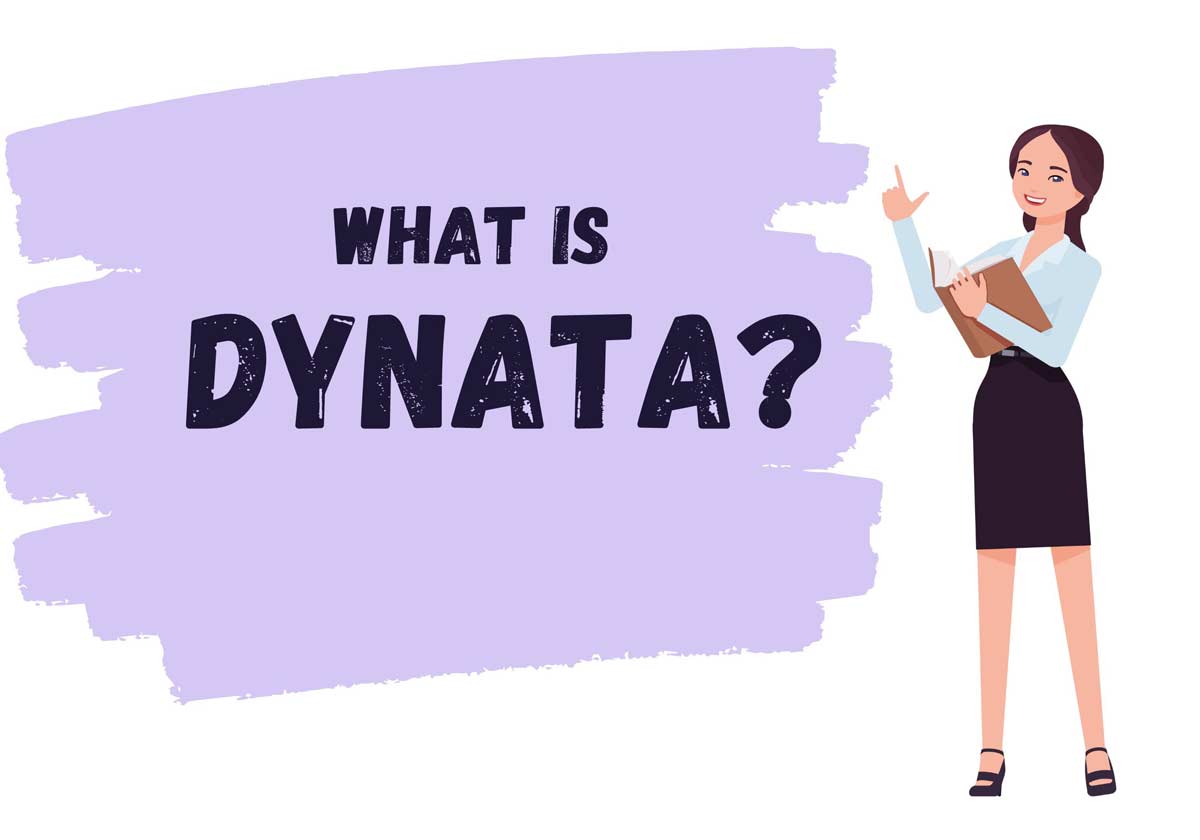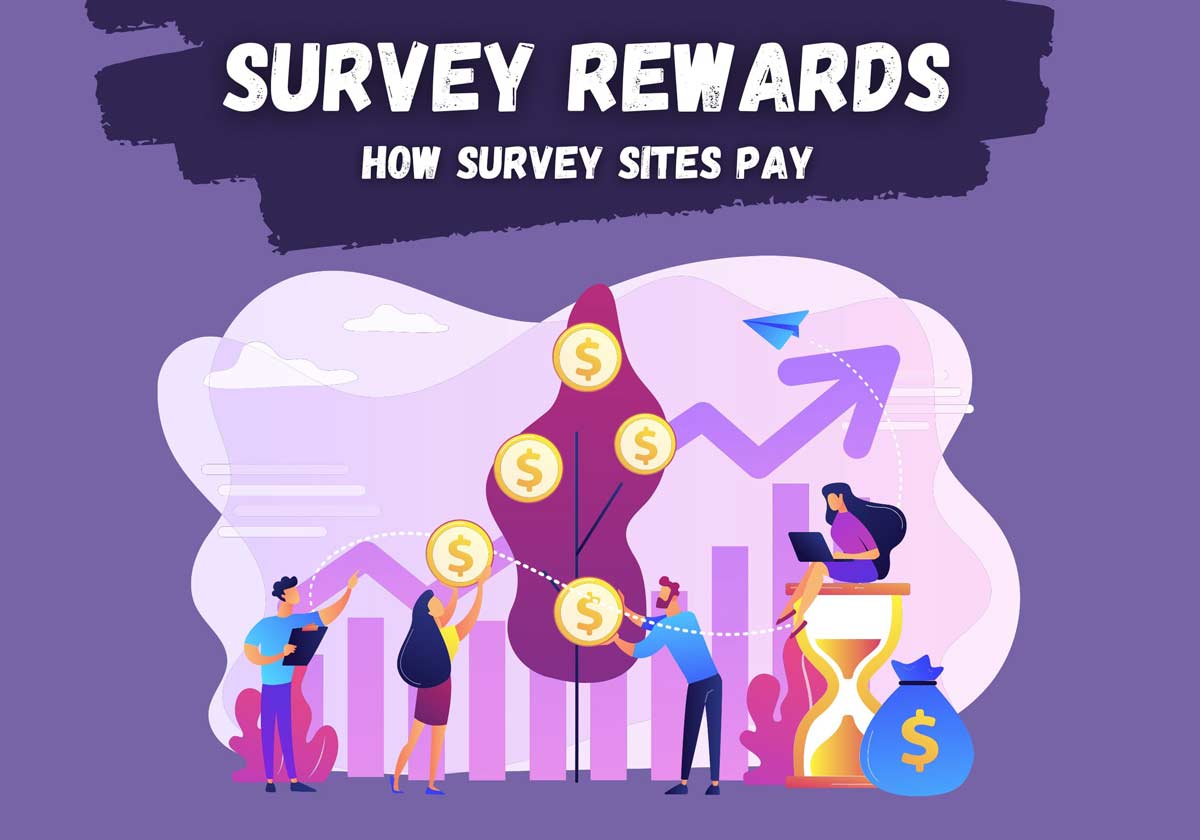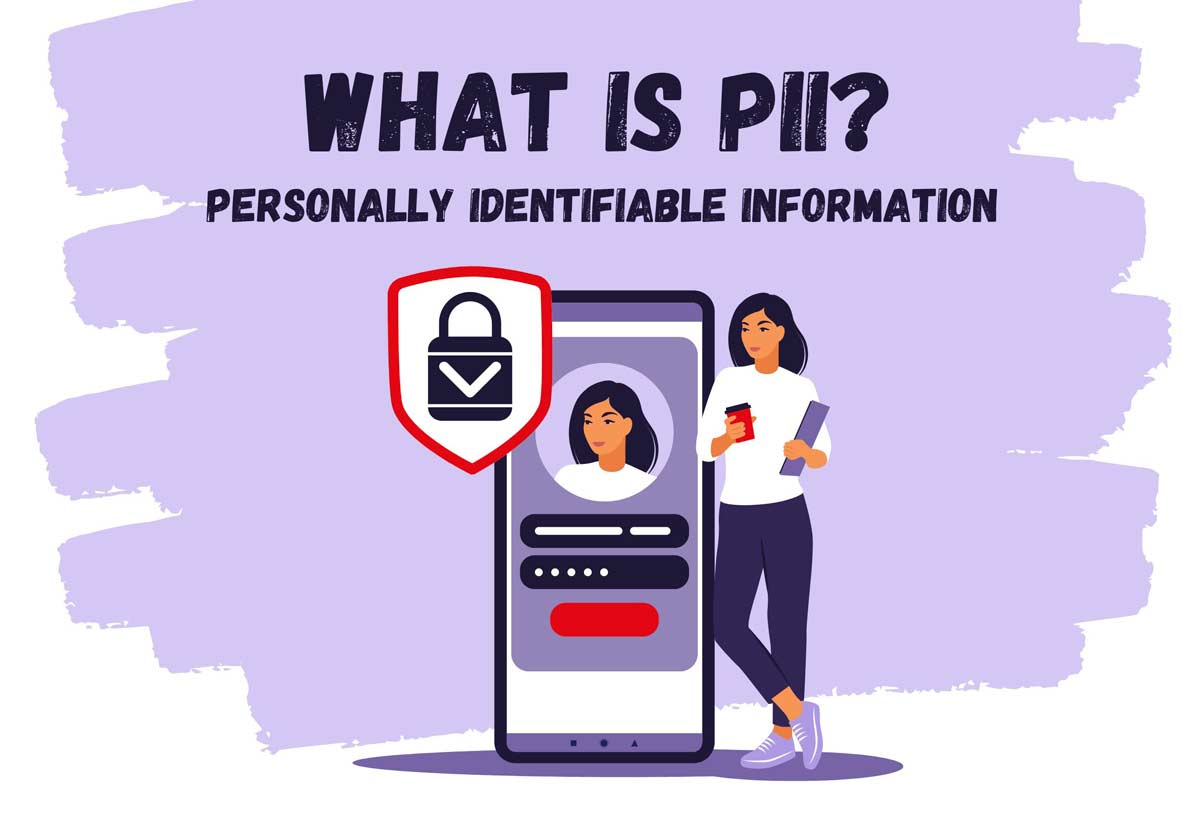In this blog post, we’ll explore if Dynata phone calls and surveys are just a waste of time or legitimate market research. We’ll shed light on how your personal data is treated, and address concerns regarding anonymity.
As a research participant, it’s common to feel confused by all the technical and formal jargon used by market research companies. But fear not! In this blog post, we’ve got your back. We’re going to break things down and make it super easy to understand.
We’ll dive into the various ways Dynata collects data and explain how it affects you when participating in research. So, come join us as we unravel the mysteries and demystify the whole process!
Disclaimer: This article is written for informational purposes only. It does not constitute legal advice, and should not be used as such.
What is Dynata?
At its core, Dynata is all about connecting researchers with valuable survey respondents. With millions of survey-takers signed up to Dynata’s panel communities around the world, they are often referred to as the largest first-party data provider globally. In addition to their market research services, they also offer media and advertising data solutions, such as ad tracking.
Content
Is Dynata legit?
You bet, Dynata is a large and serious company. They’re a big player in market research, with loads of employees and millions of people signed up to their paid survey sites. Check our reviews of Dynata survey sites for a more detailed look into each opportunity.
Dynata’s mission is all about connecting consumers like you with the folks who need that valuable info. That’s why big brands and research agencies love working with them to gather insights on all sorts of topics. By providing accurate and well-connected data, they help researchers and marketers get what makes their customers and target audiences tick. It’s a win-win for everyone involved.
What’s the concept?
Dynata started as a result of two companies, Research Now and Survey Sampling International (SSI), joining forces in January 2019. Now, they’re known as Dynata.
They’ve got massive communities of market research participants, providing access to insights from millions of people all around the world. This data is super useful for businesses to enhance their products and marketing strategies and improve the way they treat their customers.
Dynata conducts all sorts of phone surveys and online surveys to gather data on behalf of their clients. This helps organisations get a better understanding of what people feel about specific topics. It’s like peeking into the minds of people to see what they like and don’t like!
What types of data are they collecting?
Dynata collects data through several channels:
- Registration page (PII information such as your email address and phone number)
- Panel profiling questions (e.g. shopping habits)
- Online surveys (project-specific from study to study)
- Passively tracked metadata (e.g. location data through a mobile app)
- Cookies (such as third-party advertising cookies)
- Telephone surveys/CATI (e.g. political polling)
When signing up for one of Dynata’s online panels in the EU, you’ll notice several checkboxes in order to get your consent to share your data. Here is an example:
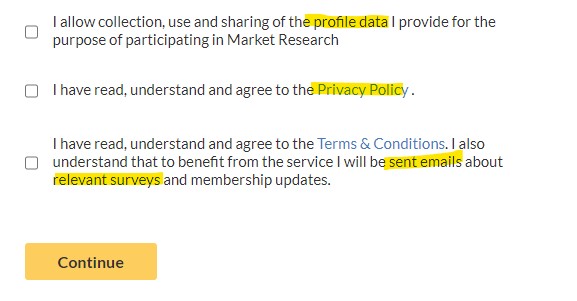
To make it easier to understand, we’ll break down the types of data you share into 3 categories:
- Profile Data
- Metadata
- Survey Data
We’ll dig into each category to make it easier to understand what type of data you are really sharing.
1. Actively submitted profile data
In this category, you’ll find the data you provide when signing up on the site, along with some extra questions about your interests, like shopping, utilities, automotive, banking, and health conditions.
This data includes Personally Identifiable Information (PII), such as your email, postal code, and phone number, along with a bunch of other profiling questions.
When you sign up, you’ll be asked to fill in these questions, and from time to time, you might receive “pre-screening” questions to see if you qualify for paid surveys.
It’s essential to keep in mind that this data will be processed by Dynata, and by checking the boxes when you sign up, you’re giving them permission to share your data with their 3rd party partners and clients. But don’t worry, they can only use this info for market research purposes. So, they can’t use it to try and sell you stuff!
2. Passively submitted metadata
When you sign up with Dynata, you’ll answer a bunch of questions to get started. But that’s not all. Behind the scenes, they also collect additional data points, which are often referred to as metadata. Depending on the Dynata panel you join, they may track and share certain info with 3rd parties.
Here are some examples of the data they might collect:
- Your location (if you’re using their mobile apps)
- Your country’s IP address (when you’re on a browser)
- Your device ID (for mobile app users)
- Your IP address (through your browser)
- Your operating system (both mobile and browser)
- Your machine ID (on the browser)
- Advertising cookies (like Nielsen’s ad effectiveness program)
If you join one of Dynata’s data collection apps, like ZAP surveys, they might ask for permission to track your location on your mobile device. Don’t worry, though, they’ll always ask for your explicit permission before tracking any sensitive data.
As a little incentive, you might get cash rewards for allowing the app to track your mobile on an ongoing basis. So, you’ll get something back for sharing this info with them.
3. Survey data
Survey data is the valuable information you provide when you answer surveys. These surveys cover a wide range of topics, like consumer products, B2B services, and medical research.
While profile data belongs to Dynata, the survey data mainly belongs to the client who commissioned the study. Just like profile data, survey data is only shared for market research purposes. Don’t worry, Dynata won’t sell your survey data to another company for advertising products or services. That would be a big no-no and against data privacy regulations in the EU and other places.
If you’re not sure about joining one of Dynata’s panels, we suggest giving their privacy policy a read. Keep in mind that their privacy policy may differ depending on where you are, but you can check out an example from OpinionOutpost in the UK. It’s always good to be informed about how your data will be handled!
Types of panel sources used by Dynata
Dynata offers access to survey takers from a mix of digital channels. Their platform will programmatically match respondents from all the different sources with surveys in real-time, and create a continuous funnel of users flowing into surveys with different types of target groups. We can break down Dynata’s sources into 2 main categories:
- Internal Panels
- External Panels
- Publishers
1. Internal panels
Dynata operates its very own survey panels. These panels are managed directly by Dynata, so they have access to a lot of first-party data, like the respondents’ personal data (PII). When people take surveys, they get matched with the right ones in real time, just like with the 3rd party sources.
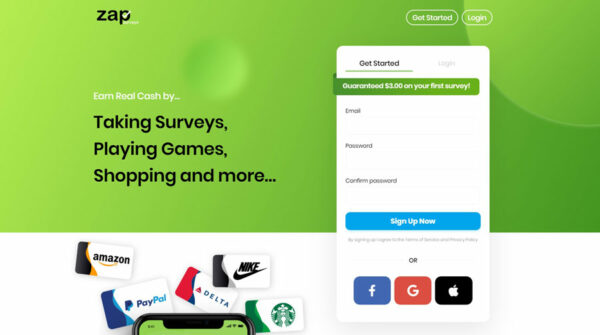
The proprietary panels come in three different flavours:
- Mobile App Panels: You might have heard of Zap Surveys and Quick Thoughts.
- Niche Panels: Think Opinion Miles Club and Surveys for Cashpoints.
- General Consumer Panels: Names like OpinionWorld and OpinionOutpost.
To find awesome new members for these panels, Dynata teams up with digital marketing agencies and affiliate networks.
2. External panels
Now, onto the 3rd party respondent sources directly connected to Dynata’s platform. These respondents have signed up on external panel sites, and are “rented out” to Dynata. They don’t give away sensitive personal information like email addresses and names, but go directly to a screener before being matched with a survey.
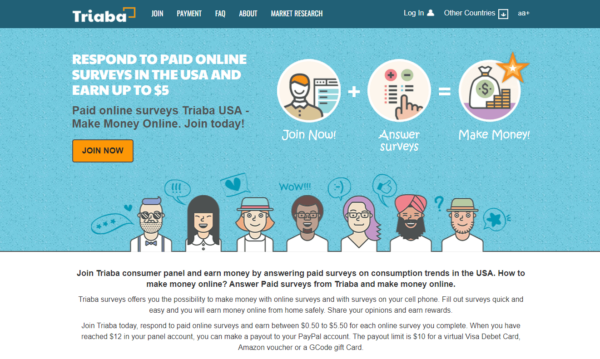
They’re also paid by the sites they signed up with, not by Dynata. No need to register again but they have to agree to Dynata’s privacy policy before taking surveys. Examples of external survey sites that are programmatically connected to Dynata’s platform through API include Swagbucks, Mobrog and Triaba.
3. Publishers
Now, let’s talk about the last piece of this puzzle: external publishers linked to Dynata’s platform. These guys make it possible for their users to take surveys using an API or SDK. They usually aren’t survey sites themselves, but rather sites such as mobile game apps or reward sites that want to keep their audience engaged and make some money.
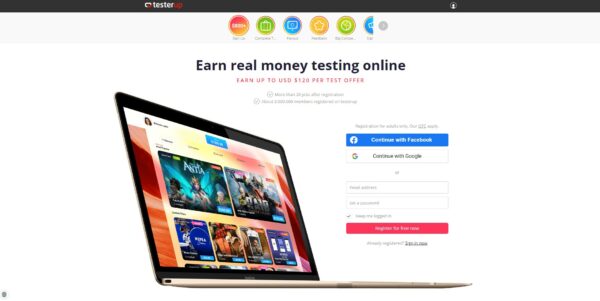
It’s like an alternative or extra way of making cash, kind of like showing ads on a website. These respondents don’t have to register on a survey site. Instead, they can take surveys whenever there’s a chance, through a survey wall or some other trigger. It’s a cool and seamless way for these apps and publishers to offer surveys to their users without them having to go through a separate sign-up process.
Dynata’s network of connected publishers are managed under their subsidiary inBrain.ai. Examples of publishers in their network include sites such as PrizeRebel, Testerup and InboxDollars.
Cookies dropped by Dynata
Dynata also uses cookies to identify the behaviour of its respondents while browsing the internet. Session cookies expire when the user closes their browser, while persistent cookies remain on the device until the cookie is deleted or the date it is set to expire is reached. If you wish, you can configure your browser to inform you when cookies are dropped, but this may also prevent Dynata from collecting Audience Measurement Data.
Types of personal data collected by Dynata
Personal Identifiable Information (PII) collected by Dynata includes data such as name, email address, and postal code. This information is collected and used by Dynata for various purposes, including marketing insights, fraud detection, and demographic data. Individual-level data may also be licensed to other companies by Dynata for other purposes.
Examples of personal data collected by Dynata:
- First and last names
- Email address
- Telephone number(s)
- Residential address
- Employer
- Job title and department
- IP address
- Browser type
- Operating system
Remember that the definition of personal data under certain jurisdictions such as GDPR in the EU is very broad. It includes any information that can be used to identify a person, such as combining different survey answers. Career history for example qualifies as personal data, even if a person’s name has been removed from the resumé. Since so much of Dynata’s data can be regarded as personally identifiable information (PII), they also need to pay extra attention to how they share and store such data.
Data breaches involving Dynata
There have been no records of data breaches originating from Dynata’s own platform, which is a positive indicator considering the vast amount of sensitive information they hold, amounting to billions of data points. The potential consequences of such data falling into the wrong hands would be significant.
Nevertheless, Dynata is not entirely immune to data breaches as they rely on various data partners. In 2019, there was an incident involving a third-party partner where cybersecurity researchers discovered a publicly accessible Elasticsearch database that exposed some data.
Dynata clarified that there was no evidence of any misuse of the exposed data. However, to take precautionary measures, the company advised individuals affected by the breach to monitor their financial accounts and credit reports for any signs of unauthorized activity.
Here is the full data breach statement, publicly issued by Dynata on its website at the time:
“Security Notice
Dynata is committed to protecting the privacy of individuals’ personal data. We take this responsibility seriously and have implemented rigorous measures to ensure your data is protected. Regrettably, a recent breach of one of our databases has occurred, and some personal information has been exposed. We are conducting a thorough investigation and will work to ensure that this situation is rectified.
What Happened
On November 5, 2019, we identified a third-party vendor that had inadvertently exposed an unsecured database containing some of our data. The database did not contain any sensitive personal data or financial information. However, it did contain records that included some personal information, such as names, physical and email addresses, and certain information contained in survey questionnaires.
What We’re Doing
As soon as we discovered this issue, we promptly took steps to secure the database and verify the vendor’s other data handling practices. We immediately launched an investigation and have been working with the vendor to understand the scope of the exposure and to take steps to rectify it. We have also notified our clients and have provided them with the details of the data that may have been affected.
What You Can Do
We have no reason to believe that the exposed data has been misused or that individuals’ privacy has been compromised. However, as a precaution, we recommend that you remain vigilant for any suspicious communications that you may receive. We also recommend that you review any information you have shared on any Dynata surveys or with Dynata representatives to ensure that it is accurate and up-to-date.
We regret any inconvenience or concern this incident may cause you. We take your privacy seriously, and we are committed to taking all necessary steps to protect your information.
If you have any questions or concerns, please contact our privacy team at [email protected].”
Source: https://www.dynata.com/blog/security-notice/
Dynata clearly dealt with the incident swiftly and professionally. At the same time, it’s a strong reminder of how vulnerable we are when leaving behind sensitive personal data online.
Dynata Phone Calls and How to Deal With Them
Dynata operates a number of call centres with thousands of part-time call centre agents located in the US and overseas. This is a completely different business unit, separated from the online survey business. Phone surveys are used to gather opinions, attitudes, and information about a specific topic or product for the purpose of market research and political polling.
Dynata spam calls
Checking reviews on sites such as Trustpilot, you’ll quickly notice a number of complaints from people receiving unwanted phone calls from Dynata, calling out spam calls. While Dynata is a legit company, it’s hard to ignore all the negative reviews. However, keeping in mind the thousands of phone calls conducted every year, it’s clear that the negative reviews represent a very small proportion of their total amount of calls.
How to avoid Dynata research spam
The best thing you can do to avoid Dynata spam calls is to opt out of their database. You have to let them know you don’t like to be contacted, and your number will be added to their no-contact list. Residents in North America should call 1-833-757-1746, while those outside North America should call 1-801-341-0764.
Dynata scammers
It’s easy to think that you’re targeted by scammers when an unknown company calls, asking you a long list of questions. It’s important to keep in mind that Dynata is a market research company that will never try to sell you any products or services. Also, Dynata will never ask for any financial or banking information. If you suspect someone is pretending to represent Dynata in order to scam you by asking for your banking details or credit card information, you should end the call immediately.
Why does dynata call you?
It is possible that Dynata, a global market research firm, may have contacted you because you were selected to participate in a survey or focus group that they are conducting on behalf of one of their clients.
Market research companies like Dynata often conduct surveys and focus groups in order to gather information and insights from consumers and other stakeholders about a particular product, service, or issue. They may use a variety of methods to recruit participants for these studies, such as online surveys, phone interviews, and in-person focus groups.
It is also possible that Dynata or one of its partners had your contact information in their database and you were selected as a potential participant based on your demographics or other criteria that match the target population.
If you have any doubts, you can contact them and ask them to confirm the reason why they have contacted you.
How did Dynata get my number?
Dynata, like many market research firms, may have obtained your contact information through a variety of methods. Some possible ways they might have gotten your number include:
Surveys or online forms: You may have previously participated in a survey or filled out an online form that asked for your contact information.
Public Records: They may have purchased your contact information from companies that collect and sell public records.
Partner companies: They may have received your information from a partner company or another research firm you have interacted with.
Online data scraping: They might have used web scraping tools to collect your contact information from your social media profiles, public forums, or other online sources.
Panel providers: They might have bought your contact information from panel providers with a pool of pre-recruited participants.
It’s worth noting that Dynata is committed to the industry standard of data protection. The company fully complies with the General Data Protection Regulation (GDPR) and the California Consumer Privacy Act (CCPA). In addition, it adheres to the Market Research Society code of conduct guidelines.
It is important to be aware that some of these methods may not be entirely legal or ethical, and how companies obtain personal information is not always clear. If you have concerns about how Dynata obtained your contact information, you can ask the company to clarify its data collection methods.
What is considered personal data?
Personal data is any information that can be used to identify a specific individual. This can include a wide range of information, such as:
Name: including first, middle, and last name.
Contact Information: including email address, postal address, and telephone number.
Demographic information: including age, gender, race, and education level.
Financial information: including credit card numbers, bank account details, and income information.
Personal Identifiers: including Social Security number, passport number, and driver’s license number.
Online Identifiers: including IP addresses, device IDs, and cookies.
Biometric Data: including fingerprints, facial recognition, and DNA.
Health Information: including medical history, treatment information, and genetic information.
Location Data: including GPS location, travel patterns, and other geolocation data.
Behavioural Data: including browsing history, purchase history, and online activity.
This list is not exhaustive, personal data can take many forms, and the definition of personal data can vary depending on the jurisdiction, laws, and regulations of a specific country or region.
It is important to note that Personal data protection laws such as the EU’s General Data Protection Regulation (GDPR) and the California Consumer Privacy Act (CCPA) have a broad definition of personal data and include any information that can be used directly or indirectly to identify an individual.

